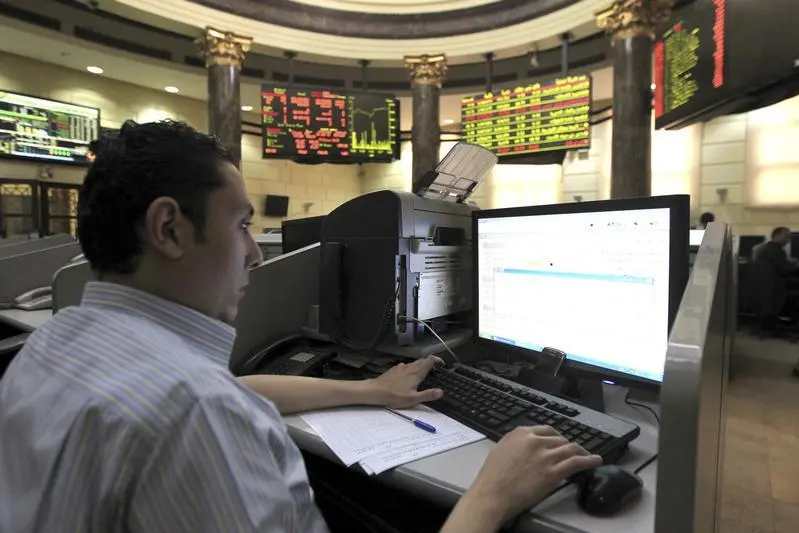PHOTO
Experts are calling for the liberalisation of Egypt's services sector, reports Niveen Wahish
Almost everything around us is a service, be it transportation, education or communications.
Services have been found to account for 72 per cent of the final cost of a simple product like a loaf of bread, says Abdel-Hamid Mamdouh, director of the Trade in Services Division of the World Trade Organisation (WTO). Speaking at a recent seminar organised by the Egyptian Centre for Economic Studies (ECES), a think tank, Mamdouh was demonstrating the extent to which services are integral to the economy.
Figures revealed during the seminar showed that the contribution of services to world GDP had reached 70 per cent in 2010, compared to 53 per cent in 1970 and greater than the manufacturing, agriculture and mining sectors combined.
In Egypt, the share of services in GDP was 47 per cent in 2014, falling behind Lebanon, Jordan and Tunisia, says Omnia Helmy, director of research at the ECES. However, Helmy pointed out that the figures did not show the full picture and that the true contribution of services was much larger.
Services contribute 47 per cent of total employment in Egypt, she said, adding that the trade in services as a percentage of GDP is still modest in Egypt, standing at 15 per cent.
Egypt's share of world exports and imports of services is negligible, standing at less than 0.5 per cent of GDP, Helmy said, arguing that in order to improve these figures barriers to trade in services must be lifted.
Trade in services is regulated by the WTO's General Agreement on Trade in Services (GATS) and addresses the presentation of a service in four different "modes." Mode one is cross-border supply, mode two is consumption abroad, mode three is commercial presence, and mode four is the presence of an actual person.
In Egypt, the greatest restrictions on services refer to mode four, or the presence of actual persons.
Egypt has made various degrees of commitment in five of the 12 sectors in the WTO classification of trade in services, which include telecoms, construction and related engineering services, financial services, tourism and travel and transport, Helmy noted.
However, she said the presence of various types of restrictions on service industries, including restrictions on the transfer of funds, limitations on the movement of people, and caps on foreign equity participation, are still hampering trade in services.
Examples include exit visas for nationals, restrictions on access to foreign currency, limitations on land ownership, visa requirements for foreigners, limitations on periods of stay and limiting the entry of services suppliers to the market through licencing and registration requirements, she said.
Mamdouh said that liberalisation of the services sector is essential for attracting investment. Two thirds of global FDI (foreign direct investment) stock is in the services sector, and restrictions on the establishment of commercial presence are detrimental to investment.
He stressed that liberalisation does not mean deregulation or privatisation. Instead, the government should play a broader role as a regulator, Mamdouh said, pointing out that in Egypt the liberalisation of the maritime sector has not been as successful as the information technology sector because it is not regulated.
"Lack of regulation can be disastrous," he said. "The essence of liberalisation is competition; if you do not achieve competition, you have not liberalised.
What brings welfare gains to the market are the availability of services, access to services, and lower prices."
Mamdouh said that while Egypt is number six worldwide in the production of fresh vegetables, its export capacity do not reflect this position and the failure of the services chain causes huge disadvantages to farmers.
"This failure caused waste of up to 30 per cent in 2010," he said, highlighting that this not only affects farmers but also the manufacturing sector.
He said that the government's development efforts in the Suez Canal area and plans to turn it into a logistics hub are designed to maximise return per container, which currently stands at $150 compared to $2,000 in other countries. Service liberalisation is essential to achieving that, he said.
To get the most out of liberalisation, Egypt needs a policy framework to fall back on, Mamdouh said. "Hesitation is not doing it. If we are a market economy, competition is important, and [we] need to improve the human element and regulatory base. Then there will be the courage to liberalise."
But while proponents argue for the liberalisation of services, others are strongly against it.
A report on GATS by Actionaid, an international NGO, says that while GATS is supposed to be a development-friendly agreement bringing much-needed foreign investment to developing country service sectors, the United Nations Conference on Trade and Development (UNCTAD) has concluded that there is no evidence linking "any significant increase in FDI flows to developing countries with the conclusion of GATS."
It said that while the mobility of semi-skilled and unskilled workers could benefit the developing world, this is not currently on the negotiating table.
Actionaid believes that "GATS restricts governments' ability to manage foreign investment for the benefit of their citizens."
"There is a real danger that highly developed, subsidised service providers from industrialised countries will crowd out service providers in developing countries in domestic and foreign markets, both now and in the future," it said.
© Al Ahram Weekly 2015





















